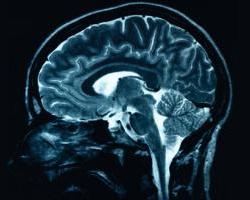The results of a new study demonstrate that traumatic brain injury (TBI) can boost the odds of experiencing major depression, personality impulsivity and post-traumatic stress disorder (PTSD) in patients with psychogenic nonepileptic seizures (PNES).
According to study author W. Curt LaFrance Jr., M.D., M.P.H., director of Neuropsychiatry and Behavioral Neurology at Rhode Island Hospital and Assistant Professor of Psychiatry and Neurology (Research) in the Departments of Psychiatry and Human Behavior and of Clinical Neurosciences at Brown Medical School:
Some patients who sustain a TBI develop seizures. Very often, these seizures are believed to be epileptic in nature, and the patient, therefore, is treated for epilepsy. Later the seizures are found to be PNES. This study demonstrates the prevalence of co-morbid mild TBI and PNES, which could suggest that some patients are being inappropriately treated for epilepsy with antiepileptic drugs, while not being treated for their actual illness: nonepileptic seizures.
LaFrance compared patients with PNES and TBI to patients without TBI. He found that 45 percent of patients with PNES also had TBI, while 73 percent of those TBIs were 'mild' TBI. PNES patients with TBI were more likely to be diagnosed with mood disorders and were more likely to receive disability than PNES patients without TBI.
Added LaFrance:
Another significant finding from the study was that if a patient had both PNES and TBI, the combination resulted in 2.75 odds increase of having PTSD, and triple the odds increase of having a history of trauma/abuse. This finding illustrates the importance of the 'double hit' of emotional and physical traumatic experiences that may occur with abuse and/or a head injury commonly found in the PNES population. This study shows that TBI and PNES are significantly associated with a cluster of diagnoses including depression and PTSD, personality, and/or trauma/abuse history, all of which could have an impact on functioning.
These findings have been published online in advance of print in the journal Epilepsia.
Source: MNT








